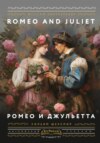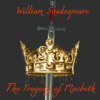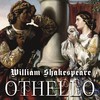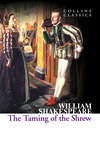Read the book: «The Shakespeare Story-Book»
INTRODUCTION
Literary critics have many times during the past two thousand years waged battle with one another over the question whether drama owes its excellence chiefly to plot or chiefly to character. Is it the business of the dramatist, critics ask successively through the ages, to inspire the playgoer with a deeper interest in the external circumstances which mould the fortunes of his heroes and heroines than in their individual temperaments and the inner workings of their minds and hearts? But critics commonly “count it a bondage to fix a belief,” and after clothing their question in the complexity of disquisition, they rarely “stay” for a clear and decisive answer. The glimmering light of dialectics usually involves in shadow one or other commanding phase of the problem. To the plain observer it would seem that both plot and character are essential constituents of perfect drama; that the strength of the one depends on the strength of the other; and that, except to the questioning critic, it is a matter of small practical consequence to which the greater importance be attached by the refinements of theory. In the best plays of Shakespeare the interest evoked respectively by plot and character is so evenly balanced that he must be exceptionally short-sighted who would set the value of the one above the value of the other. The external circumstances that mould the fortunes of Hamlet, Macbeth, Lear, Othello, rivet the playgoer’s and the reader’s attention in no less a degree than the individual temperaments of these great dramatic personages or the inner workings of their minds and hearts. It is the perfectly harmonious co-operation of plot and character that is responsible for Shakespeare’s noblest triumphs.
Close and constant study of the great plays of Shakespeare must ultimately rouse in the student a more absorbing interest in their characters than in their plots. That is the final effect of supreme dramatic genius. But the full appreciation of Shakespeare’s sure and illimitable insight into character can never be reached until we have made ourselves thoroughly familiar with the plot in which the character has its substantive being. It follows, therefore, that if one would realise completely in due time the whole eminence of Shakespeare’s dramatic achievement, one should be encouraged at the outset to study closely the stories of the plays rather than the characters apart from their settings. When the youthful mind has grasped the manner and matter of the plots, it will in adult age be in a far better position than it could be otherwise to comprehend all the excellences, all the subtleties of the characters. Only when plot and character have received equally full attention will Shakespeare stand revealed to the mature student in his manifold glory.
It was this point of view that led Charles Lamb and his sister Mary to prepare their “Tales from Shakespeare, designed for the use of young persons.” Their volume was first published in 1807. The two writers narrated, in simple language for the most part, the plots of twenty of Shakespeare’s plays, fourteen comedies and six tragedies. None of the historical dramas, whether English or Roman, were included, nor was a place found for the comedies of Love’s Labour’s Lost, and the Merry Wives of Windsor, nor for the tragedies of Troilus and Cressida, and Titus Andronicus. The greater part of the volume was the work of Mary Lamb. Although Charles Lamb’s name alone appeared upon the title-page, he was responsible for no more than six of the tales – those of the six tragedies.
Mary Lamb had little of her brother’s literary power. She was in sympathy with his literary tastes, she had something of his shrewdness of judgment, but she had none of his wealth of fancy, his pliancy of style, his humorous insight, or his learning. Although Mary Lamb’s renderings of the plots of the comedies have the charm of matter-of-fact simplicity, they cannot be held on a close scrutiny to satisfy all the needs of the situation. They often trace the course of the stories too faintly and imperfectly to recall Shakespeare’s own image. Frequently in Mary Lamb’s work pertinent intricacies of plot are blurred by a silent omission of details, knowledge of which is essential to a complete understanding of the Shakespearean theme. For example, the story of the caskets is excluded altogether from Mary Lamb’s version of the plot of The Merchant of Venice. Of Bottom and his allies in Midsummer Night’s Dream she has nothing to tell; Titania falls in love with a nameless sleeping “clown who had lost his way in the wood.” And when (in Mary Lamb’s version) the ass’s head which Puck sets on the clown’s neck is removed, he is “left to finish his nap with his own fool’s head upon his shoulders.” Nothing more is vouchsafed about the “rude mechanicals” of Theseus’s Athens. Mary Lamb’s rendering of As You Like It admits no mention of the melancholy Jaques, of the shrewdly witty Touchstone, or of the rustic Audrey. The ludicrously self-centred Malvolio and his comically tragic self-deception disappear from her version of Twelfth Night. Elsewhere in the comedies, and even in Charles Lamb’s own work on the tragedies, Shakespeare’s text is at times misinterpreted. Consequently, however fascinating in themselves the narratives of the Lambs may prove to young readers, Lamb’s Tales offer them a very fragmentary knowledge of the scope of Shakespeare’s plots. An endeavour to supply young readers with a fuller and more accurate account of them is therefore well justified, and this endeavour is made in the present volume.
In studying the stories on which Shakespeare based his plays, it is always worth bearing in mind that he cannot be credited with the whole invention of any of them, except in the case of one play – the comedy of Love’s Labour’s Lost. In accordance with the custom of all dramatists of the day, it was his practice to seek the main lines of his plots in prose-fictions, or in historical chronicles by other hands.
Romantic fiction was born for modern Europe on Italian soil. Boccaccio of fourteenth-century Florence and Boccaccio’s long line of disciples – Bandello of Milan, Giraldi Cinthio of Ferrara, and many writers of less familiar name of the sixteenth century – had for generations before Shakespeare’s epoch furnished not only Italy, but all the Western countries of Europe with their chief recreative literature in prose. The Italian novels were through the second half of the sixteenth century constantly translated into English and French, and it was to those English or French translations of the Italian romances that Shakespeare owed the main suggestion for all the plots of his comedies (save Love’s Labour’s Lost) and for many of those of his tragedies. Belleforest’s “Histoires Tragiques,” a collection of French versions of the Italian stories of Bandello, was very often in his hands. Novels by Bandello are the ultimate sources of the stories of Romeo and Juliet, of Much Ado about Nothing, and of Twelfth Night. All’s Well that Ends Well and Cymbeline largely rest on foundations laid by Boccaccio. The tales of Othello and Measure for Measure are traceable to Giraldi Cinthio.
But although Shakespeare’s borrowings from the frank and vivacious fiction of sunny Italy were large and open-handed, his debt was greater in appearance than it was in reality. He freely altered and adapted the borrowed stories in accordance with his sense of dramatic and artistic fitness, so that the finished plays present them in shapes which bear little relation to their original forms. At times he intertwined one borrowed story with a second, and his marvellous ingenuity completely changed the aspect of both; each assumed new and unexpected point and consistency. With such effect did he combine in The Merchant of Venice the story of the caskets with the story of Shylock’s bond with Antonio. His capacity of assimilating all that he read was as omnipotent as his power of assimilating all that passed in life within range of his eye or ear. The stories that he drew from books on which to found his plays can only be likened to base ore, which the magic of his genius had the faculty of transmuting into gold.
But for young readers, who approach Shakespeare’s work for the first time through the present narration of the stories of his plays, it is not necessary to learn whence Shakespeare derived their bare lineaments, or how he breathed into them the glowing spirit of life. It is essential that young readers should find delight and recreation in the tales as he finally presented them in his plays. Such delight and recreation I believe the contents of this volume is fitted to afford them.
It only remains to express the wish that the knowledge here conveyed to young readers of Shakespeare’s plots may lead them to become in future years loving students of the text of his plays. The words employed by Charles Lamb in a like connection when he first sent into the world his and his sister’s “Tales from Shakespeare” may fitly be echoed here. Young men and women cannot learn too early, in life how the study of Shakespeare’s work may, in a far higher degree than the study of other literature, enrich their fancy, strengthen them in virtue, withdraw them from selfish and mercenary thoughts. Life will bring them no better instructor in the doing of sweet and honourable action, no better teacher of courtesy, benignity, generosity, humanity; for of both stories and characters proffering the counsel to seek what is good and true and to shun what is bad and false Shakespeare’s pages are full.
SIDNEY LEE.
The Tempest
The Magician’s Isle
There was once a lonely island far away in the midst of a wide sea. Only four beings lived on this island: an elderly man called Prospero, noble, grave and learned; his daughter Miranda; and two attendants. One of these attendants was a beautiful and dainty spirit called Ariel, the other a sullen monster called Caliban. For Prospero had more than worldly learning; he knew the art of magic, and by his mighty spells he could control not only the spirits of light and darkness, but also the forces of Nature.
No travellers ever came to the island, and since the day when Miranda had been brought thither, a little baby girl, she had never seen the face of any man except her father. Peacefully the years slipped by, and Miranda had grown into a beautiful young maiden, when one day a terrible storm of thunder and lightning burst over the island. In the midst of the tempest a noble vessel seemed to be sinking, and Miranda ran to entreat her father that, if by his magic arts he had put the waves into such an uproar, he would now allay them.
“Be comforted, dear child; there is no harm done,” said her father. “What I have done is only in care for you, and I have so safely ordered this wreck that not a hair of anyone on board shall suffer hurt. Until now we have lived peacefully in this little spot, and you know nothing of what you are, nor that I am anything more than Prospero, the master of a poor enough cell, and your father.”
“It never entered into my thoughts to inquire further,” said Miranda.
“The time has come when you must know everything,” said Prospero; and laying aside his magic mantle, he bade his daughter sit down beside him, and then he told her the story of their life.
“Can you remember a time before we came to this island?” he began. “I do not think you can, for you were then only a few years old.”
“Certainly I can,” replied Miranda. “It is far off, and more like a dream than a remembrance. Had I not four or five women once that waited on me?”
“You had, Miranda, and more. Twelve years ago your father was the Duke of Milan, and a Prince of power.”
“Oh, heaven! what foul play had we that we came from thence? Or was it a blessing that we did?”
“Both, both, my girl. By foul play, as you say, were we driven from Milan, but blessedly helped thither. In those days Milan was the first State in Italy, and everywhere renowned for its splendour. I had so great a love for art and learning that I devoted much of my time to study, and left the government of the State to my brother Antonio, whom I loved best in the world and trusted beyond measure. But he was false to the confidence reposed in him, and soon began to think that he was Duke in reality. He therefore entered into a plot with an inveterate enemy of mine, Alonso, King of Naples, and by promise of a large bribe obtained his assistance. A treacherous army was levied, and one midnight Antonio opened the gates of Milan to the King of Naples. In the dead of darkness you and I were seized and hurried away. So great was the love borne me by my people that the traitors dared not kill us, but we were cast adrift in a rotten boat, without sail, mast, or tackle. By the kindness of a noble Neapolitan, Gonzalo, rich stuffs, foods, and necessaries, had been placed in the boat, together with many valuable books from my library, which I prize more than my dukedom. The waves bore us to this island, and here we have lived ever since, and I have given such care to your teaching that you know more than many other Princesses with more leisure time and less careful tutors.”
“Heaven thank you for it, dear father!” said Miranda. “And now, I pray you, tell me your reason for raising this storm.”
By his magic art, Prospero replied, he knew that by chance his enemies had come near the island, and unless he seized this happy moment his fortunes would droop, never to recover.
“But ask no more questions, Miranda,” he ended. “You are weary; rest here and sleep a little.”
As soon as Miranda was asleep, Prospero summoned his dainty and nimble little sprite, Ariel, and asked whether he had performed his bidding.
“In every particular,” replied Ariel; and he told his master how, in the guise of a flame, he had danced all over the storm-driven ship till the whole vessel seemed on fire, and every one on board except the mariners had plunged affrighted into the sea.
“But are they safe, Ariel?”
“Not a hair perished, not a thread of their garments hurt. I have scattered them in troops about the island, as you bade me. The King of Naples’ son, Ferdinand, I have landed by himself, and now he is sitting and sighing alone in an odd corner of the isle.”
“And the King’s ship?”
“Safely in harbour, hidden in a deep nook. The mariners, already weary with their labour, I have charmed away to sleep. The rest of the fleet which I scattered have now all met again, and are in the Mediterranean, bound sadly home for Naples. They believe that they have seen the King’s ship wrecked, and that all on board have perished.”
Prospero was much pleased with the way Ariel had performed his charge, but he said there was still some further work to do. He promised that if all went well Ariel in two days should be set free from service, and henceforward should be his own master. He bade Ariel now take a new shape – that of a nymph of the sea, invisible to all but his own master. In this guise Ariel approached the young Prince of Naples, and began to sing in the sweetest fashion:
“Full fathom five thy father lies;
Of his bones a’e coral made;
Those are pearls that were his eyes:
Nothing of him that doth fade,
But doth suffer a sea-change
Into something rich and strange.
Sea-nymphs hourly ring his knell:
Hark! now I hear them, ding-dong, bell.”
Lured by the sound of this sweet singing, which came he knew not whence, Ferdinand followed the unseen Ariel into the presence of Prospero and Miranda.
Now, excepting her father, Miranda had never seen a man, and at first she did not know what Ferdinand was.
“Is it a spirit, father?” she asked.
“No, child; it eats and sleeps, and has the same senses that we have. This gallant whom you see was in the wreck, and except that his handsome face is somewhat worn with grief and trouble, you might call him a goodly person. He has lost his companions, and wanders about to find them.”
“I might call him a thing divine,” replied Miranda warmly, “for I never saw anything so noble.”
Ferdinand, in his turn, was equally enchanted with the sight of Miranda, and declared on the spot that, if there were no one else whom she already loved, he would make her Queen of Naples.
Prospero was delighted with the way matters were going, for it was his desire that the young people should love each other; but fearing that a prize so easily won would be held too light, he began to throw some difficulties in the way. He pretended to believe that Ferdinand was not really a King’s son, and had come to the island as a spy. He declared he would put him into fetters, and give him only the coarsest food to eat. In vain Miranda implored her father to treat the young Prince less harshly. Prospero told her to be silent, and roughly bade Ferdinand to follow him.
The Prince was naturally indignant at such uncourteous treatment, and hastily drew his sword in defiance. But Prospero threw a sudden spell over the young man, and he stood motionless, unable to stir.
“What? Put thy sword up, traitor!” commanded Prospero sternly.
And Ferdinand, feeling himself powerless to resist, and happy that in his prison he should at least have the pleasure of beholding the beautiful maiden who had so kindly pleaded for him, followed obediently when the magician again summoned him.
The Shipwrecked Wanderers
Meanwhile the rest of the royal party who had plunged into the sea from the King’s ship were wandering in another part of the island. Among them were Alonso, King of Naples, and his brother Sebastian; Antonio, the usurping Duke of Milan; Gonzalo, an honest old counsellor of the King of Naples, with Adrian and Francisco, two of his lords.
Exhausted with the labour they had undergone, the whole party, with the exception of Sebastian and Antonio, presently fell asleep. Antonio, not content with having driven his own brother from the dukedom of Milan, now began to suggest treachery to Sebastian, the brother of the King of Naples. Ferdinand, the son of the King of Naples, he said, must certainly have been drowned, his only daughter, Claribel, was married, and far away in Africa – in fact, they were at this moment on their way home from her wedding festivities – there was therefore no near heir to the throne of Naples. Antonio suggested that Sebastian should seize the kingdom of Naples, as he himself had usurped that of Milan. He pointed out how easy it would be to slay King Alonso as he lay there asleep; in fact, he offered to do the deed himself, while Sebastian at the same moment was to put an end to the faithful Gonzalo. The other lords would offer no resistance, but would willingly agree to any suggestions made to them.
Sebastian was only too ready to fall in with this wicked scheme, but in the meanwhile, invisible to them, Ariel came near, and at the very moment when the traitors had drawn their swords and were about to kill Alonso and Gonzalo he sang in the ear of the latter and awakened him.
“Good angels save the King!” cried Gonzalo; and Alonso started awake at the shout.
“Why! how now? Ho, awake!” cried the King. “Why are your swords drawn? Why do you look so ghastly?”
“What’s the matter?” added Gonzalo, still dazed with sleep.
“While we stood here guarding your repose just now,” said Sebastian, with a ready lie, “we heard a hollow burst of bellowing like bulls, or, rather, lions. Did it not wake you? It struck my ear most terribly.”
“I heard nothing,” said the King.
“Oh, it was din enough to frighten a monster – to make an earthquake!” said Antonio. “Surely it was the roar of a whole herd of lions.”
“Did you hear this, Gonzalo?” asked the King.
“Upon mine honour, sir, I heard a humming, and that a strange one, too, which wakened me. I shook you, sir, and cried out. As my eyes opened I saw their weapons. There certainly was a noise. We had better stand on guard, or leave this place. Let us draw our weapons.”
“Lead away from here,” commanded the King. “Let us make further search for my poor son.”
“Heaven keep him from these beasts!” said Gonzalo. “For he is surely in the island.”
“Lead away,” repeated Alonso.
“Prospero shall know what I have done,” said Ariel, as Alonso and his companions started again on their wanderings. “Go, King – go safely on to seek thy son.”





















